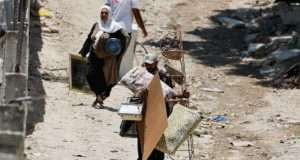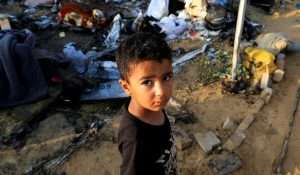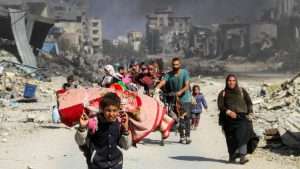Libya: Morality police to crackdown on women’s civil liberties

Libya will reintroduce the morality police to enforce “society’s traditions”, in a major crackdown on women’s civil liberties and freedom of expression, according to MiddleEastEye.
The government’s interior minister Emad al-Tarabulsi announced on November 8th that women will be barred from travelling within the country without a male guardian, adding that those “seeking personal freedom should go to Europe”.
Other measures targeting women’s civil liberties included ensuring women wear “modest” clothing – meaning girls from the age of nine will have to wear veils, according to TheTelegraph – and preventing the mixing of genders in public areas.
Al-Tarabulsi warned “strange” haircuts would also be punished when patrols resume next month, a rule attempting to neuter the influence of European trends such as quiffs or skin-fades.
READ: ICC says it has found evidence of war crimes in Libya
With the Libyan government tightening its grip on the country, the morality police will have the power to shut down barbershops and shisha bars that fail to comply with the new Islamic “social rules”, according to TheTelegraph.
Al-Tarabulsi is part of Libya’s internationally recognised government, the Government of National Unity (GNU), which rivals the Bengazi-based authority of Osama Hammad.
The move comes after the GNU was blamed for the kidnap of a high ranking military official earlier this month, according to Maghrebi.org.
Brigadier general Mustafa al-Whayshi, head of the Central Security Department, disappeared on November 6th, resulting in a protest that shut down key oil destruction values at the Zawiya refinery, just west of Tripoli.
READ: Tunisia border issue fixed more than a decade ago, says Libya
The streets of nearby Zintan were flooded with armed vehicles as demonstrators moved to protect the already closed valves to the Sharara and El Feel oil fields, the latter being crucial for Libya’s oil exports.
The Zawiya refinery, held hostage by the locals demanding al-Whayshi’s release, processes 350,000 barrels of oil a day, making it responsible for nearly a third of Libya’s oil production.
The kidnapping was condemned by members of Libya’s intelligence services who linked it to attempts to obstruct national security investigations, especially those which involve corruption and militias.
MiddleEastEye, TheTelegraph and Maghrebi,org
Want to chase the pulse of North Africa?
Subscribe to receive our FREE weekly PDF magazine













